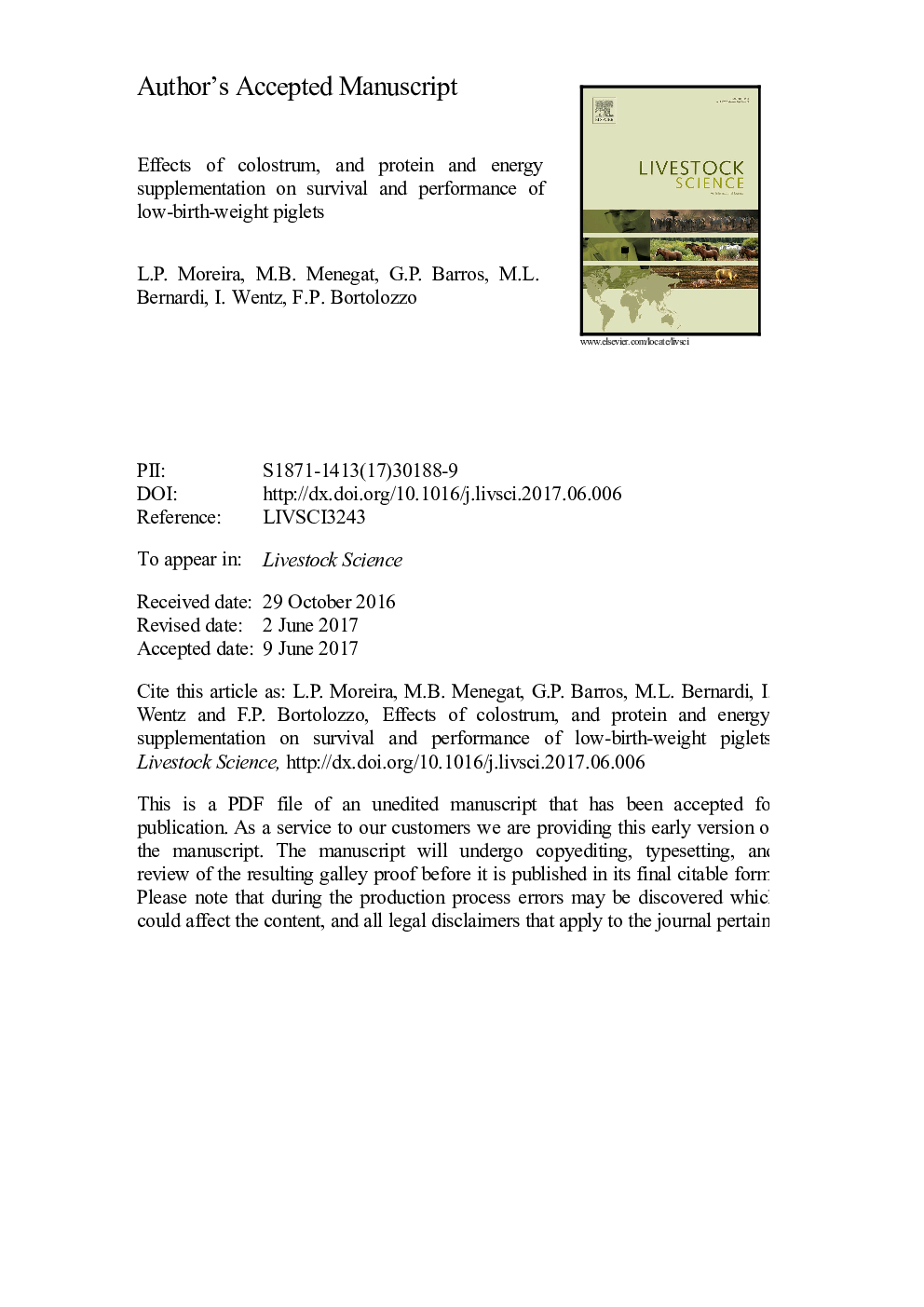| Article ID | Journal | Published Year | Pages | File Type |
|---|---|---|---|---|
| 5543104 | Livestock Science | 2017 | 26 Pages |
Abstract
The study was conducted to evaluate the effects of the amount of colostrum intake, and an oral protein and energy supplement (OPES) on the concentration of immunoglobulin G (IgG), survival rate, and weight gain of low-birth-weight piglets. Piglets with birth weights ranging from 800 to 1200 g were assigned to 1 of 6 treatments during the first 24 h of life. Treatments consisted of: With the sow (WS, n = 30) and WS plus supplement (WSS, n = 30) included piglets suckled by their dams in conventional farrowing crates, with or without OPES provided, respectively. Feed-deck (FD120, n = 30) and FD plus supplement (FD120S, n = 30) included piglets kept in a feeding deck and fed 120 mL (30 mL every 6 h) of colostrum through an orogastric tube, with or without OPES provided, respectively. The treatments FD200 (n = 29) and FD200S (n = 27) included piglets kept in a feeding deck and fed 200 mL (50 mL every 6 h) of colostrum through an orogastric tube, with or without OPES provided, respectively. The WSS, FD120S, and FD200S piglets received 3 doses (a total of 4 mL) of OPES at 0, 6, and 12 h of life. The time lapse between the birth and the first colostrum intake or gavage averaged 100.3 ± 47.8 min. After the first 24 h, they were cross-fostered for suckling to foster dams of parity 2-5. Each litter size was limited to 12 piglets, 2 of each treatment, and the lactation length was 20.4 ± 0.7 d. For all the analyses, the experimental unit was the individual piglet. The serum concentrations of IgG at 24 h after birth were greater in FD200 (P ⤠0.03) and FD200S (P ⤠0.002) than in the WS, FD120, and FD120S, whereas the IgG concentration was similar for WSS and FD200. The greatest weight gain during the first 24 h was observed in the WSS (P ⤠0.001), whereas the piglets of FD120 and FD120S lost weight (P ⤠0.01). The average daily gains until weaning, as well as the body weight at 7, 14, and 20 d, were similar among treatments. The piglets from the WSS, FD120S, FD200, and FD200S treatments showed greater (P < 0.03) pre-weaning survival rates than the piglets in the FD120. In conclusion, the weight gain until weaning is not affected by OPES or colostrum supplementation, but higher colostrum intake (200 mL) improves the survival rate until weaning, and OPES supplementation increases the survival of piglets fed 120 mL of colostrum.
Related Topics
Life Sciences
Agricultural and Biological Sciences
Animal Science and Zoology
Authors
L.P. Moreira, M.B. Menegat, G.P. Barros, M.L. Bernardi, I. Wentz, F.P. Bortolozzo,
